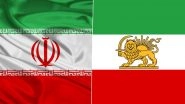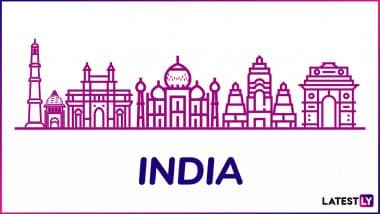Kolkata, Dec 10 (PTI) The NRC and the Citizenship (Amendment) Bill has brought forward a sharp division within the Matua Mahasangha, an apex body of the Hindu refugee sect, with one group organising demonstrations against it and another group supporting it.
The Matua community, after the death of their matriarch Binapani Devi, popularly known as "Boro Ma" earlier this year, have been divided into two groups. One sided with the TMC and the other with the BJP.
The group led by the TMC organised a sit-in against the NRC and the CAB at the Esplanade area of the city on Tuesday.
"The Matuas too feel that they have been neglected and this CAB, just like NRC, is a ploy against Bengalis. We have seen what the BJP has done in the name of NRC. Around 14 lakh Bengalis have been omitted from the NRC list. The BJP is planning to do the same in Bengal. But we would never let that happen," state Food and Supplies Minister Jyotipriya Mullick said.
The Matuas originally hail from erstwhile East Pakistan, now Bangladesh, and began migrating to West Bengal in the beginning of the 1950s, mostly due to religious persecution.
With an estimated population of 30 lakh in the state, Matuas can influence results in at least 60 assembly seats in Nadia, North and South 24 Parganas districts.
The TMC, which lost the Bongoan Lok Sabha seat - where Matuas play a deciding factor- to the BJP earlier this year, has been trying to use the issue of the Assam NRC to regain its lost ground among the Matuas in the state.
But a section of community, who are with the BJP, feel that even if NRC had backfired for the saffron party, the CAB indeed would provide refugee status to Hindu Bengalis who had migrated from Bangladesh.
"The CAB will address our long-standing demand for citizenship. We welcome the Centre's decision. We doubt the authenticity of the demonstration and identity of those who are claiming to be spokespersons and leaders of Matua Mahasangha," Prabin Mandal, a Matua and a local BJP leader in Bongaon, said.
The Citizenship (Amendment) Bill was passed in the Lok Sabha a little past midnight on Monday.
According to the proposed legislation, members of the Hindu, Sikh, Buddhist, Jain, Parsi and Christian communities, who came to India from Pakistan, Bangladesh and Afghanistan by December 31, 2014 and faced religious persecution in those countries, will not be treated as illegal immigrants and given Indian citizenship.
(The above story is verified and authored by Press Trust of India (PTI) staff. PTI, India’s premier news agency, employs more than 400 journalists and 500 stringers to cover almost every district and small town in India.. The views appearing in the above post do not reflect the opinions of LatestLY)













 Quickly
Quickly


